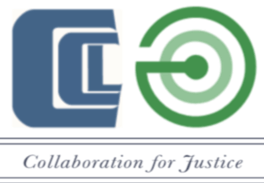Amicus Brief filed in the Illinois Appellate Case of People v. Gomez-Ramirez

On Friday, July 10, Chicago Appleseed and Chicago Council of Lawyers submit an amicus brief in the Illinois appellate case of People v. Gomez-Ramirez (AMITA Health Adventist Medical Center, Bolingbrook, and Alexian Brothers-AHS Midwest Region Health Co., Contemnors-Appellants). Our pro bono partners at DLA Piper served as counsel for the amicus brief, filed in support of AMITA Health.
In trial court in Will County, AMITA Health was held in contempt for failing to produce the medical records of a crime victim, which had been subpoenaed by the State’s Attorney in conjunction with the prosecution of the assailant. AMITA Health’s motion to quash for physician-patient privilege and for failure of notice as required by the Illinois Constitution and relevant statutes was denied; AMITA Health was held in direct civil contempt and fined $500 per day until the records are produced. AMITA Health appeals those orders on behalf of physician-patient privilege.
The Collaboration for Justice—Chicago Appleseed and Chicago Council of Lawyers—sought leave to file an amicus as part of our role in monitoring State’s Attorneys’ Offices and reporting the status of prosecution in Illinois. In this case, the State’s Attorney’s right to search the victim’s health records was improperly asserted, based on mere supposition about the contents of the records. Likewise, it relies upon a tortured readings of: (a) Brady v. Maryland, which requires State’s Attorneys to share with defendants its own evidence tending to show innocence, and (b) People v. Cochran, which focuses on prosecutorial honesty and integrity and demands that the State not use a pretext of protecting the defendants’ rights to convict them.
Brady v. Maryland, of course, is a case known to all law students and to many people well-versed in criminal justice issues. Decided in 1963, Brady requires that prosecutors share with the defense any exculpatory evidence—evidence tending to clear a person of guilt—in the State’s possession. Brady is a cornerstone of fairness in trial, seeking to address the imbalance of power, resources, and information in criminal prosecutions that heavily favor the State. Brady emphasizes that the principle goal of the prosecutor is justice – whether or not that includes conviction. It protects the rights of the defendant by ensuring access to information in the hands of police departments and other law enforcement gatekeepers.
The State’s Attorney in the case of People v. Gomez-Ramirez, however, asserts that Brady gives them the right to seek privileged information from other sources – just in case there may be information that would be subject to a Brady disclosure. The argument cannot stand, we argue in the brief, because – first – Brady applies only to information already in possession of the State’s Attorney, which the victim’s medical records were not. It follows from this that there is no information asymmetry to remedy; the medical records were not in the possession of a law enforcement agency who might make them inaccessible to the defense and, further, were already known to the defense. The State’s Brady assertion was mere pretext and a gross overstep of authority.
People v. Cochran, decided in 1924, is a seminal case in Illinois, declaring:
The state’s attorney in his official capacity is the representative of all the people, including the defendant, and it was as much his duty to safeguard the constitutional rights of the defendant as those of any other citizen.
However, in this case, the State’s Attorney has misinterpreted—or misrepresented—this duty by claiming that it requires them to claim standing for the defendant in seeking evidence which the defendant knows full well exists. In its nearly 100-years of precedential value, Cochran has stood for the principle that State’s Attorneys must protect defendant’s rights – even while zealously pursuing their cases against them. It is most often cited where prosecutors used unlawful means to obtain incriminating evidence or where failure to warn witnesses or defendants of their constitutional right against self-incrimination proves fatal to a grand jury indictment.
Importantly, Cochran is cited in Rule 3.8 of the Illinois Rules of Professional Conduct, which governs the conduct of prosecutors. Cochran is quoted “to remind prosecutors that the touchstone of ethical conduct is the duty to act fairly, honestly, and honorably.” The Will County State’s Attorney’s use of Cochran to justify a fishing expedition in to a third-party’s privileged medical records—of which the defendant is aware—must not stand.
We are grateful to Joseph Roselius, Michael Geller, and Eleni Christou at DLA Piper, LLP, for their excellent work on this amicus brief. Special thanks to the Monahan Law Group for bringing the matter to our attention.
You can download the amicus here and the appellant’s brief here.
